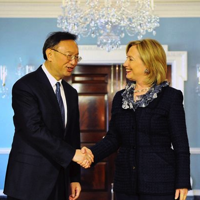Chavismo in charts (WAPO)
 Thursday, March 7, 2013 at 9:32AM
Thursday, March 7, 2013 at 9:32AM Great article that seeks to explain successes and failures of Huge Chavez in charts.
Here they are the four that attracted my attention, as they represent judgment by peers (and not the US):
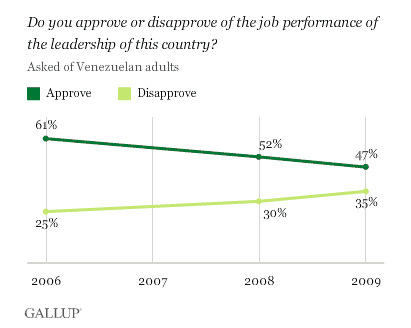
So he was clearly slipping inside the country, although his strong-arm populism still captured about half the population.
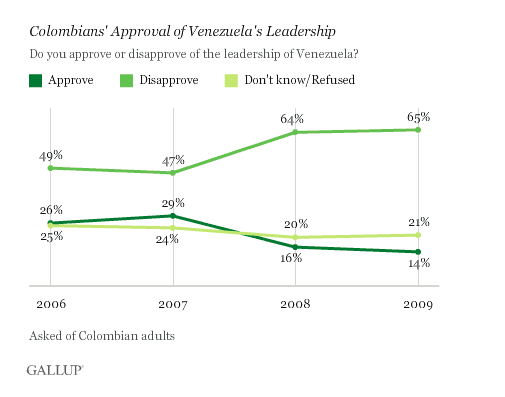
Colombia is where Chavez did his most meddling: supporting insurgents and setting up his regime as a trans-shipper of narcotics into North America. Clearly no love-loss there.
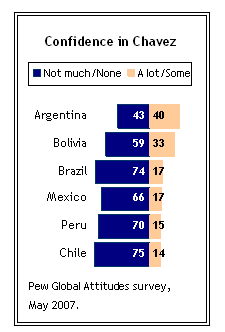
The countries where the middle class is growing (and Bolivia - considered in the Chavismo camp). Even in Bolivia, 60% don't have any real confidence in the man. The continent's real players, Brazil and Chile, clearly wanted nothing to do with the man - whatever false praise was heaped on him by Brasilia.
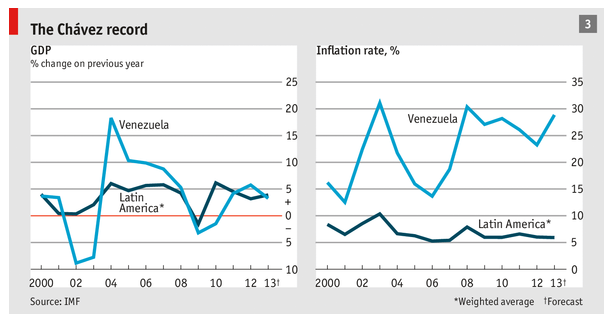
The economic record indicates a moment of Putinesque "brilliance" afforded by high energy prices mid-decade, and then run-of-the-mill performance during which antipathy grows within the country regarding his heavy-handedness - only natural. The big failure was on inflation, the long-time scourge of the region. Stunning failure there that represented his tendency to "eat the seed corn." That's the truly painful legacy: Chavez ran down the oil industry and it'll take a while to get it back to its true potential.
So a good show, but no more lasting impact that any previous populist demagogue and strong-man.












